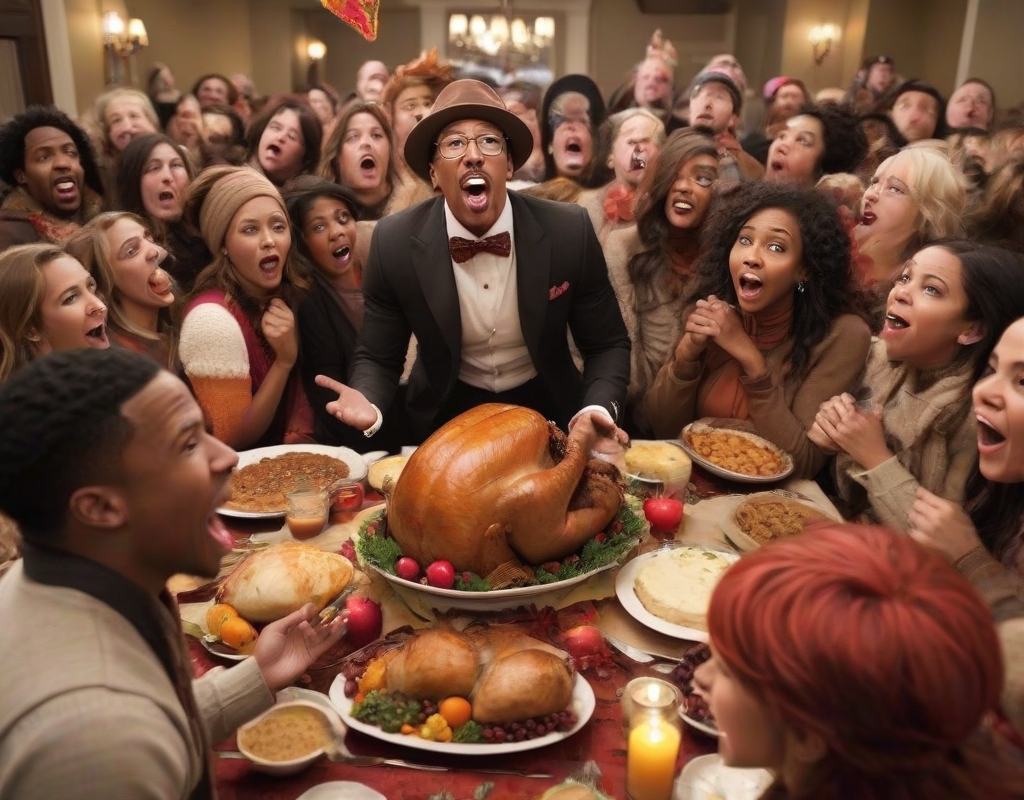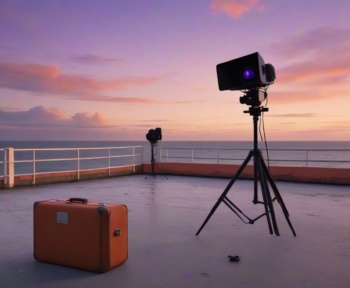Nick Cannon, the multifaceted television host and comedian, recently found himself at the center of a fervent public discussion following a joke he made at a Thanksgiving charity event. Known for his dynamic presence and quick wit, Cannon remarked that he “doesn’t f*** with Pilgrims,” a comment that ignited a mix of amusement and controversy. As this comment gains traction across various media platforms, it opens up a broader conversation regarding the appropriateness of humor in charitable contexts, historical sensitivity, and Cannon’s commitment to philanthropic efforts.
At the heart of the controversy is whether Cannon’s comment was a mere jest to lighten the mood or if it crossed the line into insensitivity. The event, steeped in a spirit of community and giving, aimed to bring together people in a festive and thoughtful gathering. Cannon, who is deeply involved in a range of charitable activities and a father to 12, often leverages his public platform to spotlight social and humanitarian causes.
Nevertheless, his quip brought to the forefront the delicate balance between humor and the historical gravitas associated with Thanksgiving. The Pilgrims, integral to the narrative of American colonization, represent a complex chapter in history that involves significant conflict and suffering for indigenous populations. Cannon’s joke served not only as a light remark but also a subtle nod to these historical complexities.
The spectrum of reactions to Cannon’s statement was wide-ranging. Some attendees welcomed the humor, appreciating the light-hearted relief during a charitable event. Conversely, others felt it was in poor taste, sparking vibrant debates at the event and on digital platforms like Twitter. These platforms rapidly morphed into battlegrounds of opinion, showcasing the instantaneous and polarized nature of social media responses.
Such incidents provoke important reflections on the place of humor in charity events. While humor can be a powerful tool for engaging audiences and alleviating tension, it also carries the risk of offending or alienating participants. This tension highlights the fine line that public figures like Cannon must navigate when addressing diverse and potentially sensitive audiences.
Experts like Dr. Lisa Feldman Barrett, a psychologist specializing in emotion and communication, suggest that humor in public settings must be handled with precision and mindfulness of the audience’s diversity and sensitivities. The challenge lies in fostering a spirit of unity and inclusion, rather than division and discomfort.
Despite the fray, Nick Cannon’s commitment to philanthropy remains unwavering. His involvement with organizations like the L.A. Mission underscores his dedication to activism and community support. These efforts are personal for Cannon, stemming from his life experiences and a profound desire to instill empathy and social awareness in his children. His philanthropic vision extends beyond mere participation, as he actively seeks to elevate marginalized voices and address pressing community issues.
Cannon’s joke also inadvertently casts light on the historical narratives surrounding Thanksgiving. While traditionally depicted as a peaceful celebration between Pilgrims and Native Americans, this simplistic portrayal often omits the harsh realities of colonization and its impact on Indigenous peoples. Figures like Professor David Silverman, who authored “This Land Is Their Land: The Wampanoag Indians, Plymouth Colony, and the Troubled History of Thanksgiving,” argue that the conventional Thanksgiving story glosses over these critical historical nuances.
The dialogue around Cannon’s remark reflects broader societal trends concerning comedy, cultural sensitivity, and historical consciousness. It challenges the public to examine the implications of humor and its capacity to either bridge gaps or widen them. Situations like these underscore the evolving nature of public discourse and the need for a nuanced approach to communication in diverse settings.
Events such as these not only stir controversies but also foster opportunities for introspection and development. They encourage a nuanced understanding where humor, respect, and historical awareness can coexist. The incident compels us to recognize the influence of our words and the potential they have to initiate meaningful conversations that transcend the confines of a single event.
In sum, while Nick Cannon’s Thanksgiving joke may have sparked debate, it also opened the door to deeper discussions about the portrayal of historical events, the role of humor in charity, and the continued importance of philanthropic efforts in strengthening community resilience and unity. Through this, Cannon’s narrative serves as a reminder of the ongoing dialogue between public figures and the society they engage with, emphasizing the power of words in shaping cultural and historical understanding.




